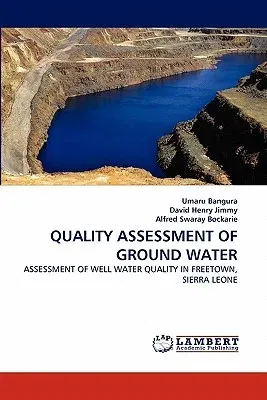Umaru Bangura
(Author)Quality Assessment of Ground WaterPaperback, 23 September 2010

Qty
1
Turbo
Ships in 2 - 3 days
In Stock
Free Delivery
Cash on Delivery
15 Days
Free Returns
Secure Checkout
Print Length
120 pages
Language
English
Publisher
LAP Lambert Academic Publishing
Date Published
23 Sep 2010
ISBN-10
3838391454
ISBN-13
9783838391458
Description
Product Details
Book Format:
Paperback
Country of Origin:
US
Date Published:
23 September 2010
Dimensions:
22.86 x
15.24 x
0.71 cm
ISBN-10:
3838391454
ISBN-13:
9783838391458
Language:
English
Location:
Saarbrucken
Pages:
120
Publisher:
Weight:
185.97 gm

